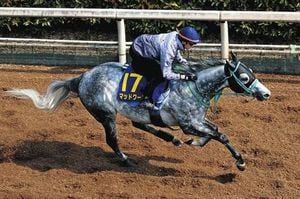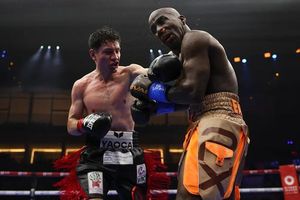In a tense match on March 26, 2025, Frank Zambo Anguissa found himself on the bench as Cameroon secured a victory against Libya in the World Cup Qualifiers. Despite his absence from the field, Anguissa's influence was palpable, as he emerged as a leader from the sidelines, providing guidance and support to his coach, Marc Brys.
The backdrop to this match was not just the pursuit of World Cup glory, but also a significant controversy surrounding the management of the national team. Anguissa and his teammates publicly expressed their discontent with the Cameroonian Football Federation's decision to exclude Joachim Mununga, the team's technical and tactical manager, from the bench. This decision has sparked outrage among players and fans alike, highlighting underlying tensions within the team.
During the match against Libya, images circulated widely on social media showing Anguissa actively engaging with Brys, offering tactical advice and suggestions. These moments captured the midfielder's commitment to his team's success, even while sidelined. His leadership qualities shone through, as he took on an almost managerial role, compensating for Mununga's absence.
Anguissa's actions did not go unnoticed. Fans and commentators praised his initiative, emphasizing the importance of player leadership in high-stakes situations. "It’s crucial for players like Anguissa to step up, especially when the coaching staff is in disarray," remarked a sports analyst. This sentiment resonates with many who believe that player involvement can bridge gaps in management, especially during crucial matches.
The controversy surrounding Mununga's exclusion stems from broader issues within the Cameroonian football structure. Many believe that the federation's decision was not only a tactical misstep but also a sign of deeper dysfunction. Anguissa's stance, along with that of his teammates, signals a potential shift in the players' approach to management and their willingness to advocate for their needs.
As the team prepares for future matches in the World Cup Qualifiers, the question remains: how will this internal strife affect their performance on the field? Anguissa's leadership could be pivotal in navigating these challenges, and his ability to connect with Brys may prove essential in upcoming games.
In the wake of this incident, the Cameroonian Football Federation faces mounting pressure to address the concerns of the players. With a World Cup berth on the line, the federation must consider the implications of its decisions not just for the immediate future, but for the long-term health of the national team.
As the players continue to rally around each other in the face of adversity, the situation serves as a reminder of the complexities involved in sports management. Anguissa's experience highlights the importance of communication and collaboration between players and coaches, especially in a competitive environment where every decision can have lasting consequences.
Looking ahead, fans are hopeful that the federation will reconsider its stance and foster a more inclusive environment for its players. The road to the World Cup is fraught with challenges, but with leaders like Anguissa, Cameroon may find a way to navigate these turbulent waters.
In conclusion, the unfolding drama surrounding the Cameroonian national team reflects not only the passion of its players but also the critical role of effective management in achieving success on the international stage. As Anguissa and his teammates continue to fight for their place in the World Cup, their unity and determination will be key in overcoming the obstacles ahead.





